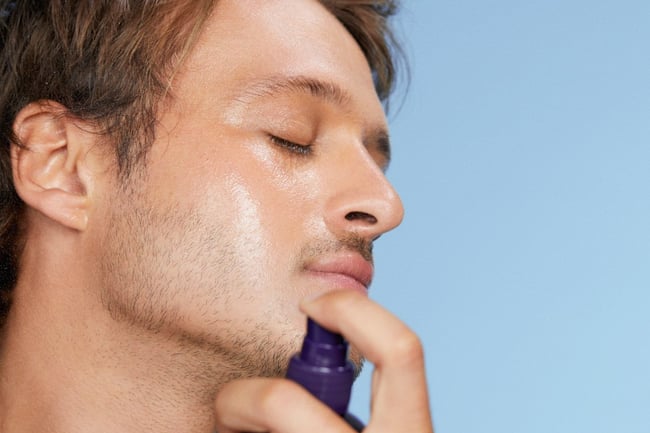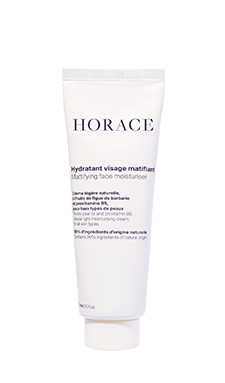

When your skin starts looking pale, make the right decision.
Some days (especially a Monday in November), it takes more than a colourful item of clothing to make your skin look brighter than it is. As you fondly remember how tanned and rested you were when you returned from your last holiday, you start looking for ways to look less pale.
The most obvious solution is to quit your job, leave your current life and start a new one somewhere exotic. You could become the new Laird Hamilton, only for standup paddleboarding. Why not, after all. However, it is our duty to remind you that we don’t yet ship Horace products to Hawaii.
The other, easier solution is to resort to artificial techniques. While self-tanners and tanning beds require little effort, we cannot condone them.
Why not resort to self-tanning?
First off, because we’re willing to bet that you like wearing white shirts or T-shirts, and that you’d like to keep on doing so. Self-tanner, much like terracotta, leaves terrible stains. Your golden-brown shirt collars would be a dead giveaway.
Secondly, because it’s artificial. You wouldn’t wear heels to look taller, or a corset belt to look slimmer, so why start colouring in your face?
Lastly, you’re not a zebra. Self-tanners and other such products always end up leaving streak marks. Have you tried explaining to someone why your healthy glow is suddenly running down your face? We haven’t either, but we can’t imagine it being any fun.
Why avoid tanning beds?
For a simple and excellent reason: it’s dangerous. The International Agency for Research on Cancer (IARC) has classified UV tanning beds as “carcinogenic to humans”, the highest cancer risk category, and one it shares with tobacco and arsenic. A short but high-intensity exposure to UVA and UVB increases the risk of melanoma. You should be aware that UV tanning bed exposure is higher than that which you experience during the hottest hours on a Mediterranean beach. And you don’t even get to hear the waves or sip on a cocktail. There’s no point in moisturising and taking care of yourself if you’re going to end up with skin cancer.
You’re not fooling anyone
It’s worth repeating: if you’re walking around with a perma-tan in the middle of November, you’re not fooling anyone. Becoming a little more tanned every day, even as the temperatures drop into single digits, is rather obvious. Either you’re secretly flying off to the Caribbean in your private jet on a nightly basis, or you’re trying to hide your pale skin under a hefty dose of self-tanner or repeated UV tanning sessions. Unfortunately, everyone knows you care about the environment, so that rules out the private jet escapades.
So how exactly can you keep a year-long healthy glow?
You might have heard that eating a lot of carrots can help prevent your skin from becoming pale. Something to do with beta-carotene. While that advice might be good for rabbits, you aren’t one.
On the other hand, the following tips will ensure your skin stays looking healthy throughout the year:
- Get enough sleep.
- Wash your face with a gentle cleanser every day, this will refresh your skin, as well as eliminate impurities and excess sebum for a healthier glow.
- Moisturise your face on a daily basis too. In the morning, a mattifying moisturiser will ensure your face stays moisturised without shining. In the evening, a rich moisturiser will foster cell renewal. The AHA it contains gently remove dead skin cells for a glowing skin tone.
- Once a week, exfoliate your skin instead of cleansing it. This will unclog your pores and remove dead skin cells to reveal a radiant skin tone. The malted barley in our face scrub contains high levels of polyphenol, an antioxidant that will make your skin glow.
- Exercise.
- Drink enough water.
- If necessary, use an eye contour serum, which will moisturise and reduce dark circles by fostering blood flow.
These tips should help you get through dark winter months without looking tired or weakened. Nobody likes looking paler than the living dead, but that doesn’t mean you should follow the easy route. Don’t give in, excellence is never that easy to achieve.
